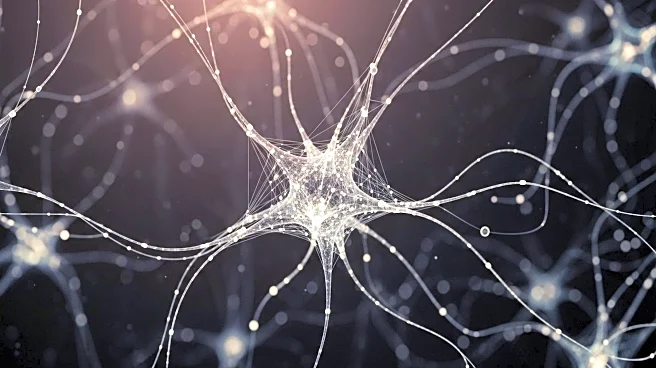What's Happening?
A recent study published in npj Mental Health Research has identified neural signatures in the prefrontal and parieto-occipital regions of the brain that are associated with evidence accumulation and response
to computerised Cognitive Behavioural Therapy (cCBT) in individuals with depression. The study involved participants from the Glasgow CBT study, who underwent fMRI scanning before and after cCBT treatment. Researchers used a probabilistic reversal learning task to assess decision-making processes and applied a hybrid reinforcement learning drift-diffusion model to analyze the data. The study found that responders to cCBT exhibited distinct neural activation patterns compared to nonresponders, suggesting that these brain regions play a role in treatment efficacy. The findings provide insights into the neurocomputational mechanisms underlying depression and may inform future therapeutic approaches.
Why It's Important?
The identification of neural signatures linked to cCBT response in depression has significant implications for mental health treatment. Understanding the brain mechanisms that contribute to treatment efficacy can help in developing personalized therapeutic strategies, potentially improving outcomes for individuals with depression. This research also highlights the importance of integrating neuroimaging and computational modeling in mental health studies, offering a more comprehensive understanding of the complex interactions between brain function and therapeutic interventions. The findings may pave the way for more targeted and effective treatments, reducing the burden of depression on individuals and healthcare systems.
What's Next?
Further research is needed to validate the findings and explore their applicability in clinical settings. Future studies may focus on expanding the sample size and examining the long-term effects of cCBT on neural activation patterns. Additionally, researchers may investigate the potential for using neural signatures as biomarkers to predict treatment response, enabling more personalized and efficient mental health care. Collaboration between neuroscientists, clinicians, and computational modelers will be crucial in advancing this field and translating research findings into practical applications.
Beyond the Headlines
The study raises important ethical considerations regarding the use of neuroimaging and computational models in mental health research. While these tools offer valuable insights, they also pose challenges related to privacy, data security, and the interpretation of complex brain data. Researchers must navigate these issues carefully to ensure that advancements in mental health treatment are achieved responsibly and ethically. Additionally, the integration of neuroimaging in clinical practice may require changes in healthcare infrastructure and training, highlighting the need for interdisciplinary collaboration.










